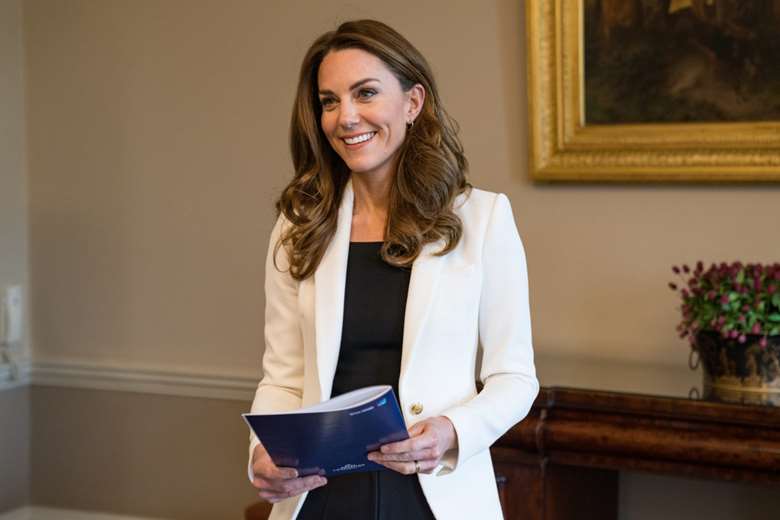Duchess of Cambridge reveals early years survey findings
Fiona Simpson
Friday, November 27, 2020
The Duchess of Cambridge has revealed the findings of the biggest ever study of early years in the UK.

According to Kensington Palace, more than half a million people took part in the Royal Foundation’s 5 Big Questions survey, which was launched in January and carried out by Ipsos MORI.
It has produced the largest-ever response from the public to research on early childhood with Ipsos MORI saying the poll response was the biggest in its history.
Kate revealed five key insights highlighting the UK’s views on the early during a keynote speech at an online forum to discuss the research which found that 98 per cent of people believe nurture “is essential to lifelong outcomes”.
However, just one in four people recognise the specific importance of the first five years of a child’s life, the survey shows.
It also found that 90 per cent of people see parental mental health and wellbeing as being critical to a child’s development but just 10 per cent of parents mentioned taking the time to look after their own wellbeing when asked how they had prepared for the arrival of their baby.
The survey also explored how Covid-19 has impacted the perceptions and experiences of parents and carers of the under-fives.
More than one third of parents expect the pandemic to have a negative impact on their long-term mental wellbeing.
It also found that parental loneliness had dramatically increased during the pandemic from 38 per cent before lockdown to 63 per cent as parents have been cut off from friends and family.
The increase in loneliness for parents is more apparent in the most deprived areas, research shows, adding that these parents are more than twice as likely as those living in the least deprived areas to say they feel lonely often or always.
“Compounding this, it seems there has been a rise in the proportion of parents who feel uncomfortable seeking help for how they are feeling from 18 per cent before the pandemic to 34 per cent during it,” the report states.
Speaking of the research, which follows nine years of work by the Duchess, she said: “‘Over the last decade I have met people from all walks of life
“I have seen that experiences such as homelessness, addiction and poor mental health are often grounded in a difficult childhood.
“But I have also seen how positive protective factors in the early years can play a crucial role in shaping our futures.
“The early years are not simply about how we raise our children. They are in fact about how we raise the next generation of adults.
“They are about the society we will become.”
Tulip Siddiq, Labour’s shadow minister for Children and Early Years, called the research an “a reminder to us all about what is at stake when decisions are made about early years support”.
“The early years of a child’s life are absolutely critical for their social, educational and physical development, yet far too often the services that support young children are not given the priority they deserve. The coronavirus crisis poses an existential threat to the early years sector and the essential education it provides to so many,” she said.
Jo Casebourne, chief executive of the Early Intervention Foundation, added: “Most parents and caregivers can confidently support their children’s development, but some experience challenges that can make it more difficult. Factors such as poor mental health or economic stress can all influence parents’ ability to provide a nurturing environment. By providing effective, additional, early support, we can prevent problems occurring in a child’s life, or tackle them head-on when they do, before they get worse.
“It’s critical for all of us working in, or supporting, vital public services to ensure that a range of effective interventions are available, and that parents and families are aware of these options, and feel comfortable accessing the support they need. One crucial step we can all take here is helping services to use and share the evidence of what works, to inform and reassure parents and families about the benefits of different forms of support.”




